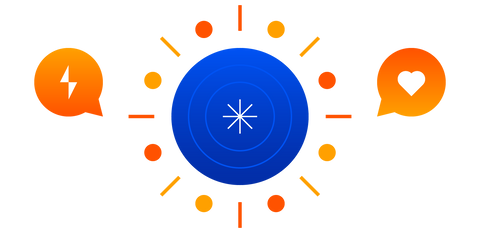If you zoom in on your body’s most fundamental activity, you’d see cells and molecules hard at work. You might be surprised to learn that some of the most vital players at work are ones you’ve never heard of.
Key Takeaways:
-
NAD+ is a critical coenzyme involved in hundreds of cellular processes, including the creation of cellular energy. NAD+ levels decline with age.
-
Nobel Laureates have studied NAD+, and it is essential to cellular health. It activates sirtuins, which regulate cellular health and require NAD+ to do so. NAD+ is also part of the reason why certain flours and rice are fortified.
-
NAD+ levels can be increased through supplementation with NAD+ precursors like NR or NMN. Both precursors are clinically proven to boost NAD+ levels in humans.
Related Products:
-
Basis: Contains NR and pterostilbene, which work together to support cellular aging and healthy DNA by increasing NAD+ levels and activating SIRT1.
-
Signal: Contains NMN, honokiol, and viniferin. These ingredients work together to support metabolic aging and mitochondrial function by increasing NAD+ and activating SIRT3.
NAD+, which stands for nicotinamide adenine dinucleotide, is a critical coenzyme in the body that’s involved in hundreds of cellular processes. But NAD+ levels decline with age.
You get NAD+ from what you eat, like milk and yeast, and green vegetables. You can also get NAD+ from supplements like Basis and Signal: they contain NAD+ precursors which convert efficiently to NAD+ inside cells.
Think you should know more about NAD+? We think so, too. Scientists are studying the long list of NAD+ benefits for a reason.

Here’s what you need to know about NAD+:
NAD+ Is the Key to Cellular Energy
Do you think of energy drinks or coffee when you think of energy? Well, you should actually be thinking of ATP, the human cells' chemical source of energy. ATP stands for adenosine triphosphate, and it’s what creates energy in your cells. NAD+ plays a main role in creating ATP.
NAD+ Declines with Age
The body needs NAD+, but it doesn’t have an endless supply of it. Two human studies mirrored what we’d already known happens in animals. In 2012 and 2015, researchers discovered NAD+ declines in human tissues. These findings were critical.
But You Can Get More NAD+
You can boost declining levels of NAD+ using what’s known as NAD+ precursors, which are molecules that start as one thing and change, chemically, to become NAD+ through various natural processes in the body. One of the main ingredients in Basis, nicotinamide riboside, is a very efficient NAD+ precursor. Basis is clinically proven to boost NAD+ levels. Elysium Health’s double-blind, randomized, placebo-controlled clinical trial demonstrated that Basis can increase NAD+ levels by an average of 40 percent. Basis also contains pterostilbene which works synergistically with NR to activate sirtuin 1 (keep reading to learn about sirtuins) and support cellular and DNA health. You can also elevate NAD+ levels with NMN. Like NR, NMN is an efficient NAD+ precursor that has been clinically proven to increase NAD+ levels in humans. Signal combines NMN with honokiol and viniferin to boost NAD+ levels and support mitochondrial and metabolic health.
TIME Magazine Profiled NAD+ In 2018
TIME magazine wrote all about NAD+, which is estimated to be involved in over 500 different cellular reactions in humans. In short, it's essential to your cellular health.

NAD+ Has Had the Attention of Nobel Laureates
NAD+ was first recognized at a Nobel Prize level in 1929 when two scientists won the Nobel Prize in Chemistry. One of the chemists identified the structure of NAD+, referencing it in his acceptance speech as “the biologically most important activators within the plant and animal world.” Other Nobel Laureates have also studied NAD+, going on to win the prize for their work.
NAD+ Unlocks the “Guardians of the Genome”
NAD+ activates sirtuins, the "guardians of the genome.” Sirtuins are a family of proteins that regulate cellular health, directing your cells to make sure they’re protected and functioning properly. Sirtuins require NAD+ to do this.

People Are Raving About NAD+
Customers that take Basis and Signal consider NAD+ abundance as essential to their lifestyle. Read customer reviews for Basis and Signal.
NAD+ Is Part of the Reason Your Flour Is Fortified
Both U.S. and international governments require the fortification of certain flours and rice. It’s fortified with niacin, which is an NAD+ precursor. Precursors are what can be converted into NAD+. This dates back to the early 1900s when a fatal disease called pellagra was plaguing the American south. It was eventually mitigated by doctors who identified nutritional deficiencies, specifically diets lacking niacin, were to blame.
Get Elysium news, subscriber-only product offers, and a monthly digest of new research in the field of aging. Sign up for our newsletter.




